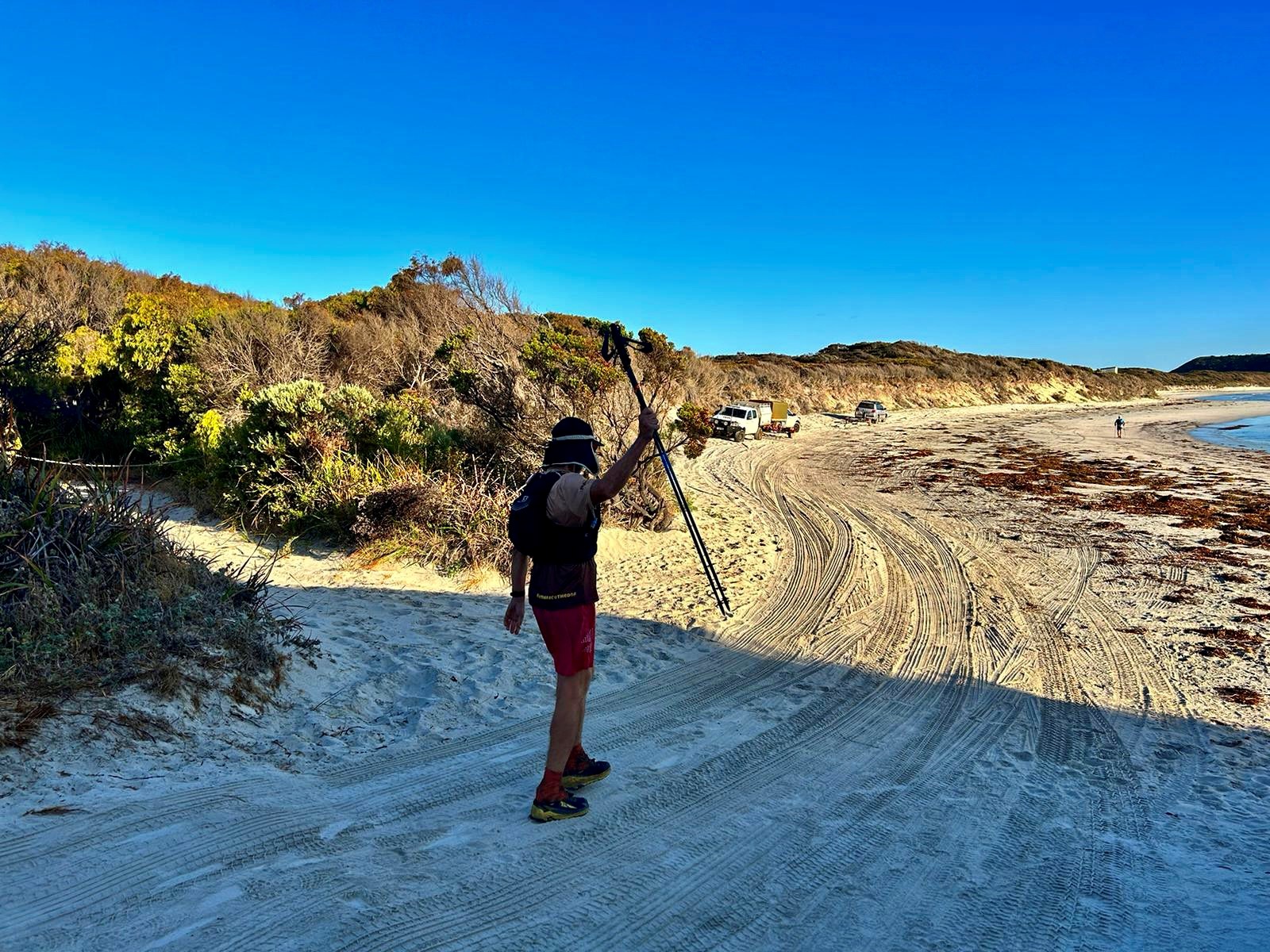Is recovery easier after an Ultra or a marathon ?
It looks like I am not alone in my theory, the quote below is from Alex Varner.
“A high level road marathon takes me longer to recover from,” admits Varner, 29, a member of the Nike Trail Elite team. “For me, it’s the repetition and pounding that occurs in the same few muscle groups in a road marathon—in my case, calves and quads—while a 50 miler requires some usage out of a much wider range of muscles. So, while I may be sore in more areas after a 50 miler, the damage is far less acute than it is in my calves and quads after a road marathon. The road marathon results in soreness that’s an inch wide and a mile deep while a trail ultra results in soreness that’s a mile wide and an inch deep, and for me, the latter has proven easier in terms of recovery.”
Different Soreness, Different Recovery Strategy?
Given that, should runners who race different distances that affect the body (and mind) in different ways, employ different recovery strategies afterward? Surprisingly not, according to many top athletes and coaches.
“The short answer is: the distance or gnarliness of the event doesn’t dictate recovery,” says Flagstaff, Ariz., ultrarunner Ian Torrence, the ultra coach for McMillan Running and a winner of over 50 ultra-distance races in his own right.
Torrence, 42, says post-race recovery boils down to three key factors, regardless of distance, duration or terrain:
- Specificity in training. “If an athlete trains appropriately for a trail 50-mile or road marathon they will train on terrain, surfaces and for durations that the event requires,” he advises. “Do this and recovery from the event will be easier than if you had not.”
- Experience. “Subsequent efforts are easier to recover from than the first,” he says. “The mind and body are more prepared for the next time the rigors of the event are presented.”
- Race-day strategy. “Running harder than warranted in hot and humid weather, improper pacing tactics and unacceptable hydrating or fueling plans will negatively impact post-race recovery for both a marathoner or ultrarunner.”
Varner, who lives and trains in Mill Valley, Calif., follows a similar recovery protocol after any race that’s marathon distance or longer, usually taking 1-2 days completely off from running immediately after the race, followed by another 1-2 weeks of easy running before he attempts any faster workouts.
‘If I can, I get a massage, stretch, roll and take an ice bath if I’m feeling up to it,” Varner says of his post-race recovery protocol. “The biggest difference is that after a road marathon, I have to concentrate much more on those few muscle groups that are really sore while after a trail ultra, everything is kind of sore, so I go with more general rolling and stretching.”
It’s important to keep in mind that everyone recovers at different rates, emphasizes Torrence, and that rushing back into training after a tough race, regardless of how long it was, is usually a recipe for injury or burnout. “Take the time you need to feel good again, both physically and mentally,” he advises.
It took about five days after this year’s Boston Marathon until my hamstrings felt like they were functioning normally again, and at least another five before I could wrap my head around resuming any kind of regular running schedule. For me, this is pretty much par for the course following a road marathon. It hits me hard and the after-effects tend to linger for a while. Compare this to last December’s North Face Endurance Challenge 50K—my second trail ultra—where my feet, hip flexors and quads took a brunt of the beating, while my upper arms and lower back were also quite sore for a day or two afterward. Interestingly, I was ready, willing and able to start running again just three days post-race—empirical evidence that on some level, an ultra-distance trail race appears to take less of a toll on my body and mind.
While the speed in which you bounce back from a road marathon versus a trail ultra will likely differ from my experience or that of other runners, the universal take-home message after a long race is clear: respect the recovery afterward and give both your body and mind the time they need to fully recharge.
The best recovery of course , as we all know, is Yelo muffins and seeing Thursday is progressive day it was an ideal time to pop along and run a recovery 10k while some of the boys ran the normal progressive 14k. Must admit the legs felt better after the best muffin and coffee in the Southern Hemisphere. (and probably Northern Hemisphere as well)

About The Author
bigkevmatthews@gmail.com
A running tragic.
Related Posts
True Blue Ultra , 2025.
A week after the 24 park runs in 24 hours I threw my hat back…
Runners love traditions and the biggest one is 6 inches.
This weekend is the race that I have ran the most in my running career…
